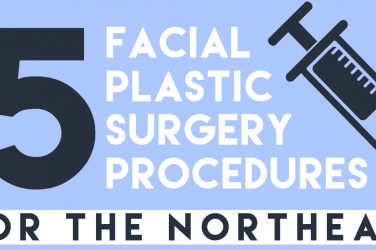Recovery after an injury is not limited to just physical healing; It also involves taking care of emotional health and protecting legal rights. Simply put, recovery must be holistic.
A holistic recovery refers to a healing approach that views the entirety of a person’s well-being (physical, emotional, mental, and spiritual) as interconnected and interdependent. Rather than focusing solely on treating symptoms or addressing isolated aspects of health, holistic recovery seeks to promote overall well-being and balance in all areas of life.
In the context of injury recovery, holistic recovery may involve not only medical treatment of physical injuries, but also addressing emotional trauma, managing stress, supporting mental health, and fostering spiritual well-being. This approach recognizes that individuals are complex beings with unique needs and experiences, and healing requires attention to all aspects of their being.
Legal guidance can be essential in this process, complementing physical and emotional well-being by providing support, clarity and security. By addressing legal aspects, stress is reduced and full attention to comprehensive well-being is allowed, thus facilitating a more effective and satisfactory recovery.
Different types of personal injury claims
Personal injury claims cover a variety of situations, from car accidents to medical negligence. It is crucial to recognize that these incidents not only affect physical well-being, but also legal well-being. In cases of car accidents, slip and falls, and workplace injuries, seeking legal guidance can ensure fair compensation to cover medical expenses and lost income. In medical malpractice cases, protecting legal rights is essential to obtaining justice and compensation for harm suffered.
Likewise, in product liability claims, legal assistance is vital to holding manufacturers responsible for defective products that cause injuries. Addressing physical and legal well-being simultaneously is crucial to a full and fair recovery after a personal injury.
Common types of personal injury claims
- Car accidents: This type of claim involves injuries sustained in traffic accidents, whether as a driver, passenger, or pedestrian. They can include serious injuries such as fractures, soft tissue injuries, or traumatic brain injuries. Claims may be directed against negligent drivers, insurance companies, or other responsible parties.
- Slip and fall accidents: These claims arise when a person suffers injuries due to dangerous conditions on a property, such as slippery floors, poorly maintained stairs, or areas without adequate lighting. Common injuries include fractures, sprains, and back or head injuries.
- Workplace injuries: These claims relate to injuries sustained while at work. They may include construction accidents, injuries from improper lifting of heavy objects, exposure to toxic chemicals, or occupational illnesses. Workers may be entitled to compensation for medical expenses and lost income.
- Medical malpractice: This type of claim arises when a healthcare provider fails to meet the accepted standard of care, resulting in injury or damage to the patient. They may include surgical errors, incorrect diagnoses, and improper prescription of medications, among others. Those affected may seek compensation for economic and emotional damages.
- Product liability claims: These claims focus on injuries caused by defective or dangerous products, such as medical devices, pharmaceuticals, automobiles, toys, or appliances. Claims may be based on defective design, negligent manufacturing, or failure to adequately warn about the risks associated with the product.
Each type of personal injury claim presents its own legal complexities and challenges. It is crucial to thoroughly research the details of each claim, which can often be found online too, including resources available like ConsumerShield. Additionally, seeking guidance from legal specialists may be necessary to fully comprehend your legal rights and the options available in your specific situation.
Why should I seek legal assistance?
Having a personal injury lawyer is essential to protect your rights and maximize compensation in the event of accidents or injuries. A qualified attorney provides invaluable support and guidance, navigating the complexities of the legal system on your behalf. By hiring a personal injury attorney, you can relieve stress and focus on your recovery, knowing that your case is in capable hands. This ensures a comprehensive approach to your physical and legal well-being, guaranteeing a favorable outcome and moving confidently toward full recovery.
Advantages of having a professional lawyer
Having a personal injury lawyer can offer a number of significant advantages:
- Specialized legal knowledge: Personal injury lawyers have specific experience and knowledge in laws related to accidents and injuries. They understand the legal details and can use their experience to protect your rights effectively.
- Maximizing Compensation: Lawyers are trained to properly evaluate the value of your personal injury claim. They will work to ensure that you receive the maximum compensation possible for your injuries, including medical expenses, loss of income, pain and suffering, and other damages.
- Negotiating with insurance companies: Insurance companies often try to minimize compensation. A personal injury attorney can handle all communications with insurers and negotiate on your behalf to ensure that you are not taken advantage of and that you receive fair compensation.
- Handling legal complexity: Personal injury claims can be complicated and full of legal paperwork. An attorney will handle all legal aspects of your case, allowing you to focus on your recovery without worrying about legal bureaucracy.
- Trial Representation: If your case goes to trial, having an experienced attorney at your side is invaluable. They will represent your interests in court, present solid evidence, and argue on your behalf to seek a favorable outcome.
- Personalized support and guidance: A personal injury lawyer not only takes care of the legal aspects of your case, but also provides you with emotional support and personalized guidance throughout the process. They will be available to answer your questions, address your concerns, and give you the peace of mind you need during a difficult time.
In short, having a personal injury lawyer can make all the difference in the outcome of your claim, ensuring that your rights are protected and that you receive the compensation you deserve for your injuries.
Conclusion
The interconnection of physical, emotional, and legal well-being is essential in the recovery process after an injury. By addressing these aspects comprehensively, a more complete and satisfactory recovery is promoted. It is important to recognize that seeking legal guidance is a crucial part of this holistic approach.
A holistic recovery emphasizes the importance of treating the whole person, not just the injury or illness, and recognizes the interconnectedness of physical, emotional, mental, and spiritual well-being to achieve optimal health and well-being.
By consulting with personal injury legal professionals, those affected can protect their rights, maximize compensation, and alleviate the stress associated with the legal process. Hence the importance of evaluating and knowing all available options, as well as seeking support from professionals to ensure a path to recovery that addresses all of your physical, emotional and legal needs.
Meta description:
Recovery journey: Understanding legal options after injuries
Recover fully after an injury. Explore legal options to protect your rights and obtain the compensation you deserve. Consult professionals today at ConsumerShield!








Show Comments